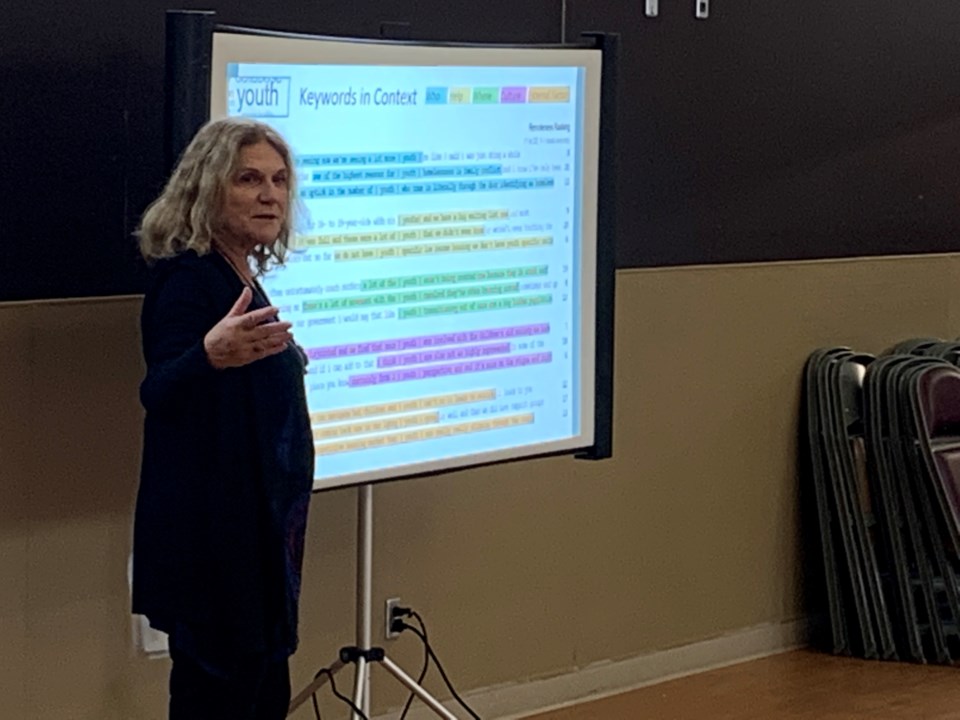Dr. Cheryl Forchuk believes the homelessness problem can be compared to a game of musical chairs.
"If you understand the game of musical chairs, you can understand homelessness," explained Forchuk.
"So picture the chairs as affordable housing within a community. The people circling are the people at the lower income that need to access those chairs and the music stopping marks points of vulnerability such as changes in people's lives such as coming out of children's aid, a family breakup, or the loss of a job.
"The loss of housing happens during the transition period but any time you have more people circling the chairs available then you are going to have a homeless problem."
That was the analogy the physician, who is in year three of a four-year study on homelessness in Canada which has taken her and their team to all four corners of the country
Since January 2021, her team has collected data from 28 distinct communities with homelessness challenges. They have visited a variety of community shelters and organizations to meet with those with lived experience, as well as service providers.
"What we are trying to do is get more accurate numbers and a more accurate understanding of homelessness across the country," she said.
The first six forums have been scheduled in communities across Ontario, including Thunder Bay, North Bay, Kingston, Chatham-Kent, London and Brantford.
The North Bay forum took place on Thursday at the Indigenous Friendship Centre in North Bay.
She believes North Bay is experiencing the same problems many other communities this size in Canada are dealing with.
"What we have found here is an increase in first-time homelessness,"said Dr. Forchuk.
"Two, some of those first-time homeless are coming from rural communities where the services are not available, so a big influx from those surrounding areas along with a system that is totally stretched." she added about her findings within North Bay.
Lana Mitchell, executive director of Low Income People's Involvement in Nipissing (LIPI), and newly elected city councillor was one of the many who took in the forum.
"When you put all the factors and add them up together you have an explosive almost unmanageable intimidating set of scenarios that are happening right now and we need some people to get together and I believe this could be the beginning of our next new council because that is the first thing on everybody's list at the municipal level," said Mitchell.
"We have to have solutions, we can't just be talking about it; we all know what is going on, we all see what is going on.
"There is not a home for some people at any price and we need to get together. We need to accept that we need a wellness centre or call it whatever you want to call it, and we need to get that done."
Preliminary data presented at the workshop highlighted issues by community, however nationally the research team has found that the extent of homelessness is a growing problem and has been elevated during the pandemic. The team has also noted a number of regional differences when it comes to homelessness in respect to urban versus rural communities.
“Our ultimate goal is to gather the most accurate numbers of people experiencing homelessness across the country so we can collectively work together towards solutions, “adds Dr. Forchuk.
“Solutions such as an increase of services that are targeted to address specific concerns and vulnerable populations in each unique community.”
